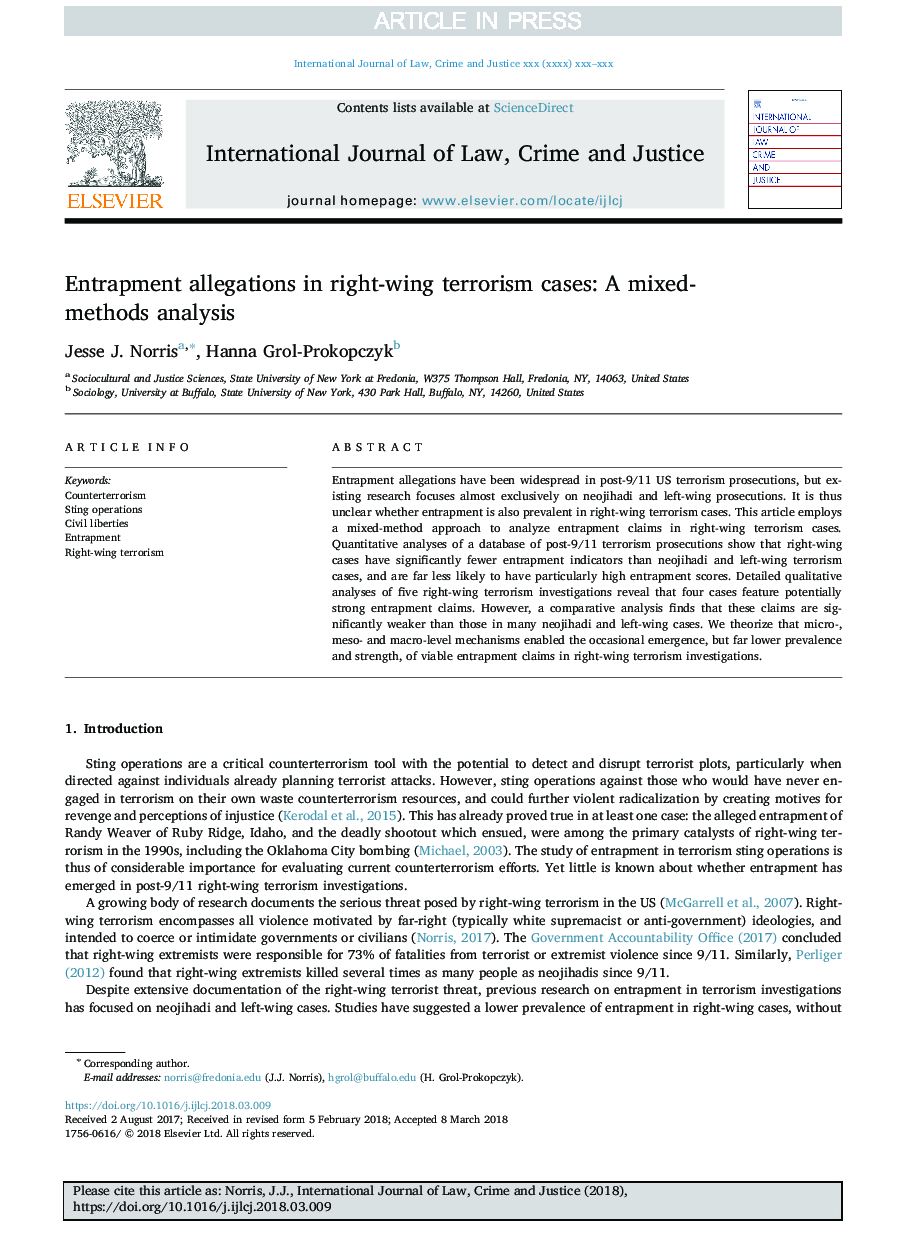| Article ID | Journal | Published Year | Pages | File Type |
|---|---|---|---|---|
| 7532003 | International Journal of Law, Crime and Justice | 2018 | 12 Pages |
Abstract
Entrapment allegations have been widespread in post-9/11 US terrorism prosecutions, but existing research focuses almost exclusively on neojihadi and left-wing prosecutions. It is thus unclear whether entrapment is also prevalent in right-wing terrorism cases. This article employs a mixed-method approach to analyze entrapment claims in right-wing terrorism cases. Quantitative analyses of a database of post-9/11 terrorism prosecutions show that right-wing cases have significantly fewer entrapment indicators than neojihadi and left-wing terrorism cases, and are far less likely to have particularly high entrapment scores. Detailed qualitative analyses of five right-wing terrorism investigations reveal that four cases feature potentially strong entrapment claims. However, a comparative analysis finds that these claims are significantly weaker than those in many neojihadi and left-wing cases. We theorize that micro-, meso- and macro-level mechanisms enabled the occasional emergence, but far lower prevalence and strength, of viable entrapment claims in right-wing terrorism investigations.
Related Topics
Social Sciences and Humanities
Social Sciences
Law
Authors
Jesse J. Norris, Hanna Grol-Prokopczyk,
